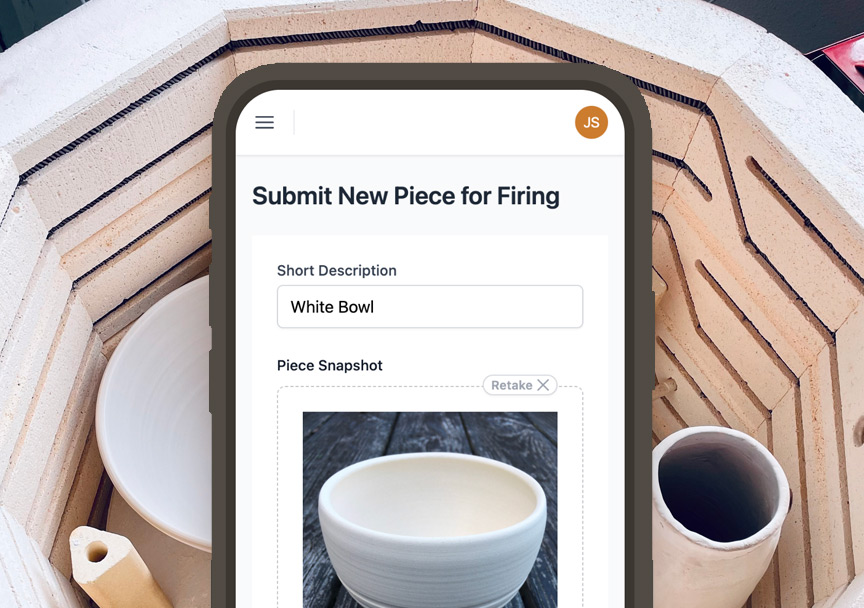As a pottery studio owner, your priority should be creating and maintaining a space that guarantees the health and safety of your students and instructors. The arrangement of your studio, equipment usage, and policies concerning hazards all serve to prevent accidents and long-term health complications. Risk and liability reduction are the rewards of investing time and resources into safety.
This guide outlines the key considerations and best practices for enhancing your studio's safety in all critical areas - from studio space layout and ventilation to responsible kiln firing. Through proactive measures, you can transform your studio into a space where students can focus on creativity, free from potential harm.
Designing a Secure Studio Environment
Your duty as a studio owner involves building a space that safeguards your students' health. Implement strong exhaust fans and vents to remove dust and fumes from areas.
Encourage circulation of fresh air by opening doors and windows. Since clay particles can linger in the air, dust collection systems can effectively trap dust at the wheel during throwing.
Work tables can help illuminate intricate areas. Task lighting at wheels and work tables can help illuminate intricate areas.
Incorporate windows and skylights to maximize natural light. A bright, naturally lit studio boosts energy levels and reduces eye strain.
A neat and organized studio is synonymous with a safe one. Store tools properly on shelves and racks to make them easily accessible yet secure. Keep floors and worktables clutter-free to mitigate tripping and falling risks. Labeling containers distinctly is vital to being able to identify clays, glazes, and chemicals. A well-ordered studio minimizes accident possibilities.
Mitigating Studio Hazards
Your crucial role as a studio owner involves minimizing exposure to harmful studio substances. Encourage students to wear N95 masks to filter out dust during throwing and glaze mixing. Regularly mop floors with water to reduce dust levels further.
Instruct students to wear gloves and masks when handling glaze ingredients, avoiding lung and skin contact. Ensure you provide proper ventilation in glaze mixing areas to limit exposure to hazardous fumes. All ingredients should be stored securely in sealed containers to maintain chemical stability.
Establish designated hazardous waste bins for students to dispose of chemicals, clay scraps, and other materials that require special disposal. These bins should be clearly labeled and students should be trained on correct waste separation.
Firing Pieces with Safety in Mind
Kiln firing demands meticulous attention from both you and your students to avoid explosions and other accidents. Regular kiln maintenance, including inspecting elements and wires for wear, cleaning kiln surfaces from drips, and checking kiln sitters, is imperative. Adhere to manufacturer guidelines for correct ramp speeds and hold times to prevent cracks and explosions during firing.
Teach students to always start at low temperatures, gradually increasing to the final cone temperature. Ensure that top temperatures are sustained to fully fuse glazes before the cooling process begins. Students must wait until kilns have fully cooled below 100°F before unloading to prevent burns. Provide kiln gloves for safe handling of hot ware.
Maintaining a Clean and Sanitized Studio
As an owner, it's crucial you establish and communicate clear cleaning procedures and expectations. Daily and weekly thorough cleaning is required to prevent health hazards caused by dust and clay debris buildup.
Implement a daily sweeping routine to remove surface dust and debris. Schedule weekly wet mopping for a more comprehensive cleaning and disinfection of the floors. Regularly wash pottery wheels using hoses to rinse away accumulated clay. Use stiff brushes and water to scrub clay off bats, cutters, and tools, ensuring they are fully dried after to prevent rust. Ensure that soap and disposable towels are readily available for students to wash their hands frequently.
Maintaining a clean, organized, and adequately equipped studio showcases your commitment to health and safety. Making these initial investments can lead to a reduction in accidents over time.


